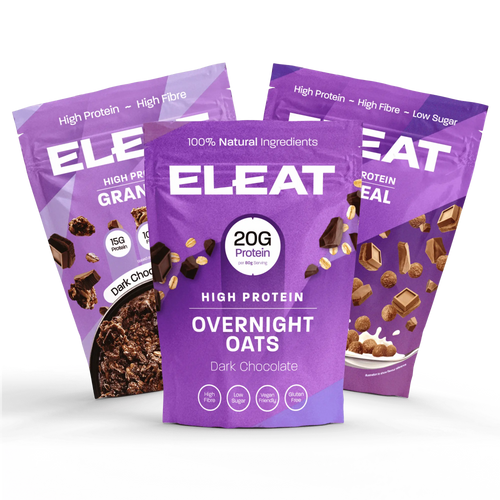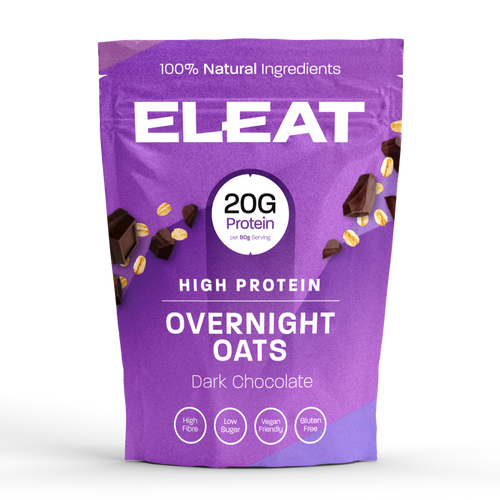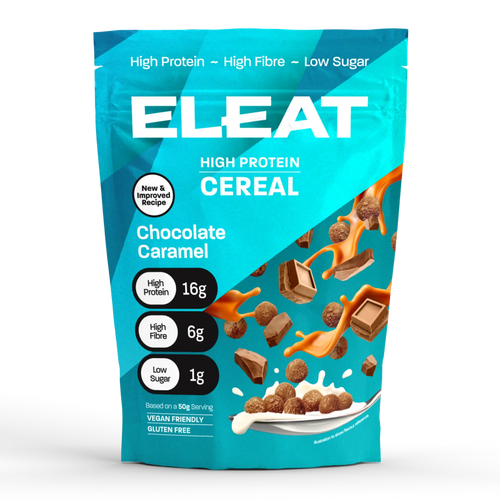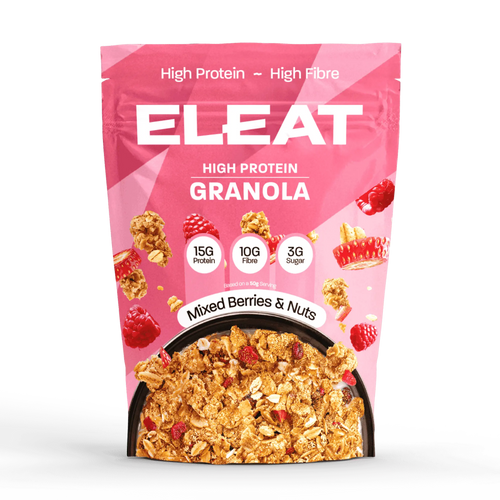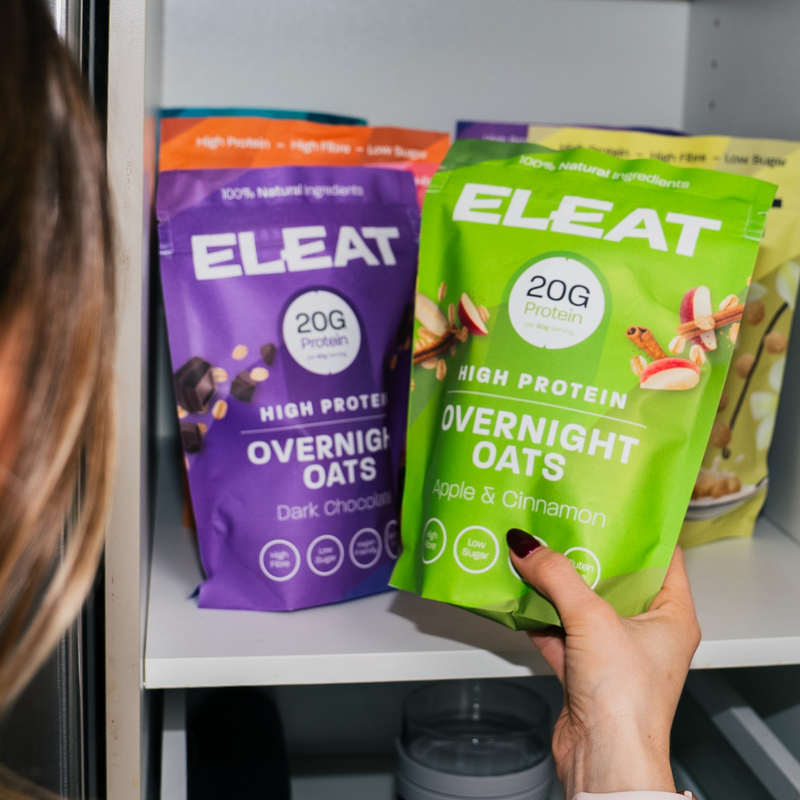In this article:
Protein plays a vital role in daily nutrition, contributing to muscle repair, energy production, and overall body function. But, how much protein do you really need each day?
Many people are uncertain about how much protein they actually need to maintain a healthy diet. With various factors such as age, activity level, and personal health goals influencing these needs, the answer isn’t always straightforward.
In this blog, we’ll explore how to determine your ideal daily protein intake based on these individual factors, helping you make more informed nutritional choices.
Why Protein Is Essential
Protein is a fundamental component of every cell in the body, playing a key role in many critical functions. One of its most well-known purposes is supporting muscle repair and growth, making it especially important for active individuals and athletes. Protein also serves as a source of energy, helping to fuel the body, particularly when carbohydrates and fats are in short supply.
Beyond muscle repair and energy, protein is essential for producing enzymes and hormones that regulate bodily functions, from digestion to mood regulation. It supports overall health by aiding metabolism, allowing the body to efficiently process nutrients and maintain a healthy weight. Protein also plays a crucial role in the immune system, helping to produce antibodies that fight infections and keep the body protected. Without sufficient protein, these systems can be compromised, affecting everything from energy levels to immune resilience.
Factors That Influence Your Daily Protein Intake
Several factors determine how much protein you need each day, from body size to your personal health goals. Here’s a closer look at the key elements that influence your daily protein requirements.
Each of these factors—body size, activity level, age, gender, and personal goals—combine to influence how much protein you should consume daily. Understanding these elements will help you tailor your intake to meet your specific needs.
Body Weight and Size
Larger individuals typically need more protein to support their body’s functions. Since protein helps maintain and repair muscles, bones, and tissues, someone with a higher body mass will require more of it compared to a smaller person.
A simple way to estimate your needs is to base your protein intake on your body weight, typically calculated in grams per kilogram (or pounds) of body weight.
Activity Level
Your lifestyle also plays a major role in determining protein needs. Those with an active lifestyle—whether through exercise, physical labour, or sports—have higher protein requirements due to the increased strain on muscles and tissues.
Active individuals need more protein to support muscle recovery and growth. Conversely, sedentary individuals who engage in little to no physical activity generally require less protein, as their muscles are not being regularly broken down or stressed.
Age and Gender
Protein requirements change as we age. Younger individuals, particularly during periods of growth such as adolescence, tend to need more protein. As we get older, protein intake becomes increasingly important for maintaining muscle mass and preventing age-related muscle loss.
Gender can also influence protein needs, as men typically require more due to having higher muscle mass on average, though individual differences matter more than gender alone.
Health Goals
Whether you are looking to build muscle, lose weight, or maintain your current health, your protein intake will vary. Those focused on muscle gain require higher amounts of protein to fuel muscle repair and growth, especially after strength training.
If your goal is weight loss, consuming sufficient protein can help preserve muscle while reducing body fat. Even if you’re simply maintaining your health, moderate protein intake supports long-term wellness and muscle preservation.
General Guidelines for Protein Intake
When it comes to determining how much protein you need each day, official recommendations offer a helpful starting point. The Recommended Dietary Allowance (RDA) for protein suggests a minimum intake of 0.8 grams per kilogram of body weight for the average adult. This amount is considered sufficient to meet the basic needs of most people for maintaining muscle and overall health.
However, your personal protein requirements can vary based on your activity level. For those with a more active lifestyle, protein needs can range from 1.2 to 1.6 grams per kilogram of body weight, especially for individuals involved in strength training or endurance sports.
Translating Protein Needs into Food Portions
To better understand how these numbers apply to your diet, let’s look at real food examples. If you weigh 70 kg and aim for 1.0g of protein per kg, you would need around 70 grams of protein daily. Here’s how that can break down:
1 chicken breast (150g): approximately 31g of protein.
1 cup of cooked lentils: around 18g of protein.
1 large egg: about 6g of protein.
1 serving of Greek yogurt (170g): contains around 17g of protein.
1 portion of ELEAT High Protein Cereal (50g) - 17g of protein (without milk!)
By spreading your protein intake across meals and snacks, you can easily meet your daily needs while ensuring variety in your diet. Whether you’re focused on maintaining health or aiming for more ambitious fitness goals, tailoring your intake to your activity level and body weight will help you meet your personal protein needs.
Special Considerations for Athletes and Active Individuals
For athletes and those with intense physical routines, protein needs are often higher due to the increased muscle stress and repair required from regular exercise. Intense physical activity, such as weightlifting, endurance training, or competitive sports, can lead to muscle breakdown, making it crucial to consume enough protein to support muscle repair, growth, and overall recovery.
Increased Protein Requirements
Athletes typically need more protein than sedentary individuals to accommodate their higher levels of physical activity. Protein requirements for athletes can range from 1.2 to 2.0 grams per kilogram of body weight, depending on the intensity and type of exercise. For instance, someone engaged in heavy strength training might be on the higher end of this spectrum, while those participating in endurance sports might fall somewhere in the middle.
Sources of Protein
Incorporating a variety of protein-rich foods into your diet ensures that you meet your daily protein needs while also benefiting from a range of other essential nutrients. Here’s a look at both animal-based and plant-based sources of protein:
Animal-Based Protein Sources
- Meat
Chicken: Skinless chicken breast is a lean source of high-quality protein.
Beef: Lean cuts like sirloin or tenderloin offer substantial protein and important nutrients like iron and vitamin B12.
Pork: Lean pork loin or tenderloin provides a good protein boost.
- Dairy Products
Greek Yogurt: Rich in protein and probiotics, making it excellent for gut health.
Cottage Cheese: Offers a high protein content along with calcium and other vitamins.
Milk: A versatile source of protein, calcium, and vitamin D.
- Eggs
Whole Eggs: Provide complete protein and essential nutrients, including vitamins A, D, and B12.
Plant-Based Protein Sources
- Legumes and Beans
Lentils: High in protein and fiber, making them a nutritious addition to soups and stews.
Chickpeas: Versatile for making dishes like hummus or adding to salads.
Black Beans: Great in salads, soups, and as a meat substitute in various recipes.
- Tofu and Tempeh
Tofu: Made from soybeans, tofu is a high-quality plant protein that can be used in a variety of dishes.
Tempeh: Fermented soybean product with a nutty flavor, offering a protein-rich alternative to meat.
- Nuts and Seeds
Almonds: Provide protein along with healthy fats and vitamin E.
Chia Seeds: High in protein, fiber, and omega-3 fatty acids.
Hemp Seeds: Offer a complete protein source and essential fatty acids.
ELEAT’s high-protein granola is a really healthy alternative to the current available granolas with 15g of protein and only 3g of sugar
Balancing Protein with Other Nutrients
While protein is essential, it’s important to balance it with other nutrients to maintain a well-rounded diet. Incorporate a variety of vegetables, fruits, whole grains, and healthy fats to ensure you’re getting a broad spectrum of vitamins, minerals, and fiber. This balanced approach supports overall health, enhances nutrient absorption, and contributes to a sustainable and enjoyable eating pattern.
By including both animal-based and plant-based protein sources in your diet, you can meet your protein needs while also benefiting from a diverse array of nutrients that support overall health and wellness.
Conclusion
Protein is undeniably crucial to our daily nutrition, impacting everything from muscle repair and growth to energy production and immune function. Despite its importance, many people find it challenging to determine their exact protein needs. The amount of protein required varies based on several factors including body weight, activity level, age, gender, and personal health goals.
From general guidelines provided by the Recommended Dietary Allowance to specific adjustments for athletes and active individuals, knowing how much protein to consume is essential for maintaining health and achieving fitness goals. Protein-rich foods—both animal-based and plant-based—offer a variety of options to meet your needs, each bringing its own set of benefits and nutrients.
Remember, while meeting your protein needs is important, it should be balanced with other essential nutrients. A well-rounded diet that includes vegetables, fruits, whole grains, and healthy fats will not only support your protein goals but also enhance overall health and vitality.
